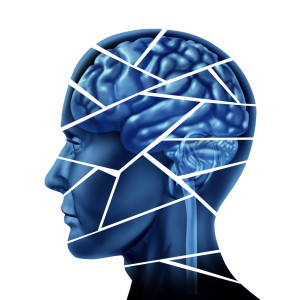 In my previous video (and blog) about finding the right team for your brain injury rehabilitation, one of the key specialists I mention is the speech-language pathologist.
In my previous video (and blog) about finding the right team for your brain injury rehabilitation, one of the key specialists I mention is the speech-language pathologist.
A speech-language pathologist is a medical professional who specializes in speech disorders and cognitive-communicative disorders. According to OSLA (Ontario Association of Speech-Language Pathologists and Audiologists), over 75% of individuals with acquired brain injury (ABI) experience difficulty with various aspects of speech and communication. These difficulties are typically cognitive-communication impairments that can impact their ability to return to work or school, as well as relationships with family and others in their lives.
Examples of cognitive-communication tasks that brain injury victims commonly experience problems with:
- Information Processing:
Brain injury victims often feel as though their head is too “full” or they are experiencing “information overload”. They can be overwhelmed by having too many pieces of information to manage at once, such as instructions, tasks, requests, questions, emails, etc.
- Problem-Solving:
To solve the problems that occur regularly in their day-to-day lives, brain injury victims may need to work on their problem-solving skills. Finding solutions involves combining thinking, brainstorming, and communication skills.
- Reading:
Reading requires absorbing language and text, and then processing and comprehending the complex meanings, relationships, and context. Reading books, news, computer screens, or even the TV guide can be difficult for people with brain injury, who may be able to read individual words but have trouble interpreting the complex relationship between text, language, and meaning.
- Social Communication:
Brain injury victims commonly experience difficulties with emotion, such as moodiness, anger management problems, depression, and more. They may also have reduced impulse control. These factors can affect their ability to communicate without alienating others. They may not be able to stop themselves from swearing, yelling, or saying whatever is on their mind – which can lead to trouble with family, friends, or even law enforcement.
- Speech and Conversations:
According to OSLA, 48% of respondents told researchers that since their brain injury, they have had trouble having a one-to-one conversation. Being able to communicate with others requires the ability to follow the conversation, assess meaning, remember the right words, formulate your own response, and say the correct thing. Like reading, it’s a complex interplay between language and meaning that can pose difficulties for people after brain injury.
- Memory:
According to the Ontario Brain Injury Association (OBIA), 95% of respondents with brain injury had trouble remembering some or most of the time. This problem can have a large effect on someone’s speech and ability to carry on a conversation. They may frequently forget what they were about to say, which can ultimately result in those with brain injuries not wanting to take part in conversations for fear of looking stupid.
Brain Injury Rehabilitation with a Speech-Language Pathologist
For those who have suffered a brain injury, a speech-language pathologist can be invaluable. They are uniquely trained to help people with brain injuries improve skills such as:
- Listening
- Speaking
- Reading
- Writing
- Information processing
- Social communication
As part of a brain injury victim’s complete rehabilitation team, this skilled professional can help on the road to recovery.
How Your Speech-Language Pathologist Can Help Your Personal Injury Lawyer
Speech-language pathologists can be a great asset to your brain injury lawyer, as they will help quantify the impact the injury has had on your cognitive-communication skills, and therefore on your ability to return to your regular activities of living. Medical records are a powerful tool to demonstrate your circumstances in a settlement meeting, mediation, or the courtroom.
A thorough lawyer who has access to good medical documentation can help you get the best settlement possible and ease your financial burden as your recover.
Roger R. Foisy is an experienced Personal Injury Lawyer in Ontario who has helped clients with brain injuries receive compensation. If you or a loved one have suffered a brain injury, please contact us for immediate support and a free consultation.
Watch my video series on brain injury.
*Roger R. Foisy has completed courses in Neurorehabilitation, Advanced Brain Injury Rehabilitation, and Acquired Brain Injury from Brock University. However, he is not a medical professional. The advice in this blog is not intended as a substitute for medical advice.
More on Brain Injury from Roger R. Foisy:

